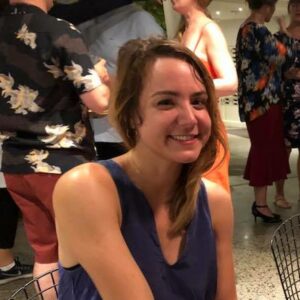Jennifer Ninci
Assistant Professor, ABA Program Coordinator

"My research is focused on evaluating behavioral interventions for individuals with developmental and/or intellectual disabilities, including children with autism and complex communication needs."
Hometown
Houston, TX
Department
Special Education
Related Degrees
- MEd, SPED: Interdisciplinary
- BCBA/BCaBA Course Sequence
- MEd, SPED: BCBA
What is your current role in the Department of Special Education?
I am an assistant professor and our applied behavior analysis (ABA) program and fieldwork coordinator. I teach, advise, and/or provide fieldwork supervision for a few of our programs in the Special Education Department including the ABA programs (BCaBA-Track, BCBA-Track, and the MEd + BCBA-Track), a special education teacher preparation program (Post-Baccalaureate-Severe Disabilities/Autism), as well as the Exceptionalities PhD program. I coordinate our ABA coursework sequences and the ABA fieldwork component that we offer, so I work closely with prospective ABA program students, current students, and a variety of program faculty. I also engage in a variety of research and service opportunities.
How did you become interested in the special education field?
My own experiences as a school-aged student is likely where it all started. I was a recipient of special education services for a speech impairment and I recall participating in other kinds of remedial programs throughout my elementary school years. I also loved working with kids ever since I was one. I got into fields related to special education as early as high school where I took a course in which we got to teach at a preschool. I also took on summer jobs to support kids at arts day camps, which is where I first worked with a child with autism.
What types of candidates do you hope/recommend to pursue the program?
I’d recommend candidates that have a passion to teach and to be a continuous learner.
How does the program prepare and support its students?
1) We work hard to continuously fine-tune the scope and sequence of content across programs and within courses, 2) I work among many impressive colleagues with diverse professional backgrounds, 3) all our faculty get to be involved in fieldwork supervision and this enables us to have continuous practice experiences, and 4) many of our courses are designed to embed competency-based experiences.
What is your philosophy of teaching?
Uplifting others is what the teaching profession is all about.
Briefly describe your own road to higher education.
It wasn’t until I got involved in special education and ABA research that I considered going into higher education. It was all made possible through timely opportunities and encouragement offered by some stellar professors and mentors.
What are your research interests?
My research is focused on evaluating behavioral interventions for individuals with developmental and/or intellectual disabilities, including children with autism and complex communication needs. The research I conduct with this population falls into five intersecting areas:
- Variables affecting motivation and engagement
- Assessment and treatment of challenging behavior
- Adaptive and pivotal skill development and generalization
- Strengthening the validity of single-case data analysis and aggregation
- ABA supervision and training
What do you like to do outside of education?
I love to visit with close friends and family. Lately, my hobbies include exploring and painting (mostly watercolor) the natural wonders of Hawaiʻi, riding around on my electric scooter, and Wing Chun Kung Fu.
Anything else you would like to share?
I am lucky to have found a dream job in Hawaiʻi and it is very important to me that I give back to this precious community in all the various ways that I can.
